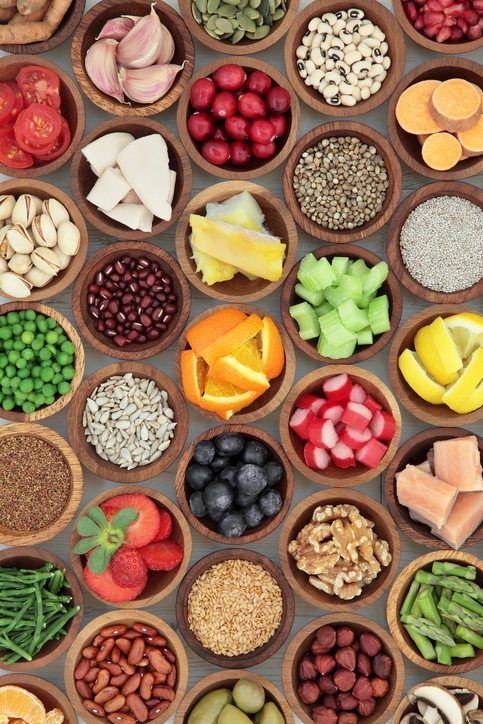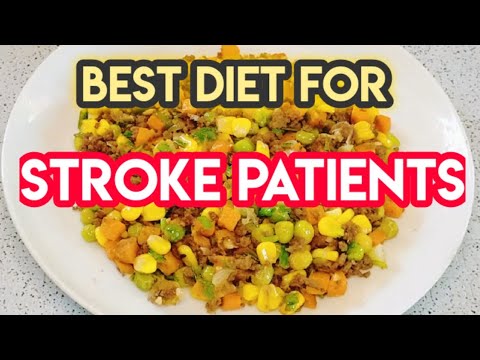
It is vital to live a healthy lifestyle for the longevity of your life and improve your quality of life. Developing positive habits will keep you in better health and reduce the risk of chronic disease. Good nutrition, exercise and a balanced diet are key to maintaining a healthy weight. Many resources are available to help improve your overall health. Your body's health will make it easier to be happy and more productive.
Living healthy is all about eating well. The program's emphasis on high-quality foods that are rich in nutrients will help you maintain a healthy lifestyle throughout your life. The program treats you as a person, rather than treating specific diseases. You can make positive changes to your health and lower your risk for chronic diseases by focusing your attention on these important areas.

You can start small with healthy habits like taking more steps every day, drinking more water, eating more fruit, and increasing your water intake. It can start with something as simple as not eating the second helping of potatoes. But it's best to start small and build your way up to a healthier lifestyle. Even if you're not motivated to start a new routine, you can gradually improve your lifestyle by incorporating some new healthy habits. It is always better to take small steps at a time. This will help you in the long-term.
For your long-term mental and physical health, a healthy lifestyle is essential. Studies have shown that a healthy lifestyle reduces the risk of certain diseases like diabetes, heart disease and obesity. A healthy lifestyle can also help improve family relationships. People who live a healthy lifestyle also tend to live longer. You can reap many health benefits from a healthy lifestyle. You will be happier, healthier, and more fulfilled. You'll be able to fit into your favorite jeans without feeling unfit or unhealthy.
To live a healthy lifestyle, eat more fruits & vegetables. The World Health Organization defines healthy as eating more fruits and vegetables than those who don't. In addition, the World Health Organization defines the word lifestyle as a combination of the attitudes and values of a person and their environment. Hence, living healthy means making wise choices. A healthy lifestyle is vital to living a balanced life. This is why you should eat plenty of vegetables each day.

Lifestyle choices that promote brain development and growth are key to a healthy lifestyle. This will help you stay physically fit and will reduce the risk of diabetes. You'll also be more comfortable sleeping. Eating healthy foods will make it easier to live well. A healthy lifestyle will also keep your weight in check, give you more energy, and prolong your life. But emotional health is equally important. If you have high stress levels, you're more likely to smoke, drink alcohol, and argue with others. It is important to practice yoga, meditation, and physical fitness.
FAQ
Is it true that kidney stones can be caused by overeating protein?
Protein helps to maintain healthy bones, tissue, and skin. Too much protein can cause calcium to be excreted through the urine. In turn, this can result in kidney stones.
It's important to note that not everyone gets kidney stones after eating more than 2 grams of protein per kilogram (2.2 pounds) of body weight. It is possible to eat high levels of protein without developing kidney stones.
Your sodium intake can prevent kidney stone formation. Sodium helps regulate water balance in the kidneys. A high level of sodium can increase the risk of developing kidney stone.
You can also try reducing your protein intake if you get kidney stones. Protein accounts for about half the daily caloric requirement of most adults. A reduction in protein intake will likely result in weight loss.
If you do decide to eat more protein, don't go overboard. You should aim to consume less than 20% of your total calories from protein.
Are you a cardio-exercise fan?
Cardiovascular exercise has many advantages. It improves blood circulation, strengthens heart muscle, gives you energy, and can even help you lose weight.
Cardiovascular exercise includes running, biking, hiking, swimming, tennis, basketball, soccer, volleyball, football, etc.
It is important that cardio exercises are not performed at high intensities. This could result in injury.
If you feel fine, only do the cardiovascular exercise.
Don't push yourself beyond what you can handle. If you do, you might injure your self.
Cardiovascular exercise is best done warm-up first. Next, increase your intensity gradually.
Always listen to your body. If you feel pain, stop doing cardio exercise immediately.
Also, after a cardiovascular workout, it's advisable to take a rest. This allows your muscles time to recover.
Cardiovascular exercise is a great way to lose weight.
It is the most efficient way to lose weight and stomach fat.
How many times per week do I need to exercise?
It all depends upon how much time you have and what type or exercise you prefer. An average guideline is to do moderate-intensity aerobic activity 3 to 5 days per semaine. It is important not to overdo it. Consistent exercise is essential to achieving maximum benefit from your workouts.
Which exercises are most effective for me?
It all depends on your fitness goals. Some people prefer endurance sports like swimming, cycling, or running. Others love lifting weights or using resistance bars. There are many types of exercise programs today. Pick the option that fits your needs.
Statistics
- According to the American Academy of Dermatology (AAD), men over 50 are at a heightened risk of developing it. (healthline.com)
- The PRS enabled risk stratification for overall prostate cancer and lethal disease with a four-fold difference between men in the highest and lowest quartiles (HR, 4.32; 95% confidence interval [CI], 3.16-5.89). (pubmed.ncbi.nlm.nih.gov)
- 10 pounds in a month is likely during a lean bulking phase, especially for beginners. (muscleandstrength.com)
- Candidates and applicants must pass all four tests at 70% (minimum level) to graduate from Basic Deputy U.S. Marshal (BDUSM) Training. (usmarshals.gov)
- According to the American Heart Association, blood pressure should be checked at least once every two years, beginning at age 20. (my.clevelandclinic.org)
External Links
How To
What nutrients does a man need daily?
Healthy growth and development of men requires healthy nutrition. Vitamins, minerals, vitamins, nutrients, carbohydrates, fats and fiber are all essential for the body.
You also need specific nutrients for different times in the day. When you're sleeping, your body uses energy from food for hormones, proteins, and enzymes. When you get up, protein is used to repair and build muscle.
Your body uses the night to break down fat and store extra energy as glucose. Your body will still need nutrients, but it will require fewer calories during this time. If you feel hungry, you may consider having a snack during the evening.
You need to eat enough carbs and protein when you exercise. Muscle soreness can occur if you work out hard.
To avoid this, you need to eat carbs and proteins within two hours of training. Your body will break down stored glycogen to provide glucose for energy.
Also, protein must be consumed immediately after your workouts. This will prevent muscle tissue from being damaged while you sleep.
Your body can produce lactic acid during intense physical activity. Your body can build up lactic acid in the bloodstream which causes fatigue. This can be avoided by eating foods high in carbohydrates like fruits and vegetables.
Carbohydrates are a good source of energy to help you recover from hard exercise.
You may also want to include lean meats and fish, as well as yogurt, cheese, yogurt, beans and nuts in your diet.
All these foods are high-quality sources of protein. Protein promotes muscle growth and repairs damaged tissues. Protein is also necessary for the production of sex hormones such as testosterone.
To maintain healthy skin, hair, and joints, you also need sufficient dietary fats. Healthy men need between 20% and 35% of their total caloric intake from fat.
Fat protects your heart from cancer and keeps it strong. It keeps your brain healthy and functioning well.
Vegetable oils, such as olive oil, sunflower oil or corn oil, soybean oil and peanut oil, can supply most of the fats you require.
These oils contain high levels of monounsaturated fat acids (MUFAs). MUFAs help lower cholesterol and reduce inflammation. They protect your cells from damage by free radicals.
Saturated fats (SFAs), are found mainly in animal products such as meat, milk products, and butter. SFAs can raise LDL ("bad") cholesterol levels and increase triglycerides. They promote weight gain and abdominal fat.
Polyunsaturated fats (PUFAs) are found in plant-based sources like vegetable oils, nuts, seeds, and grains. PUFAs improve cardiovascular function and decrease inflammation. They are also good for controlling blood sugar and cholesterol.
Erectile dysfunction is common in men with low HDL ("good") cholesterol. A high intake of saturated fats leads to higher levels of bad cholesterol.
Red meat and pork are a common source of prostate problems in men who eat a lot. When cooked at high temperatures, nitrates can be converted to nitrosamines. These compounds cause cancer.
Most processed meats contain nitrites and other harmful chemicals. You should avoid them.
According to the American Heart Association, you should limit your consumption of red meat to no more that 2 meals per week. Choose poultry, fish and legumes instead.